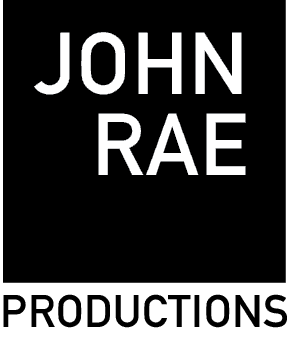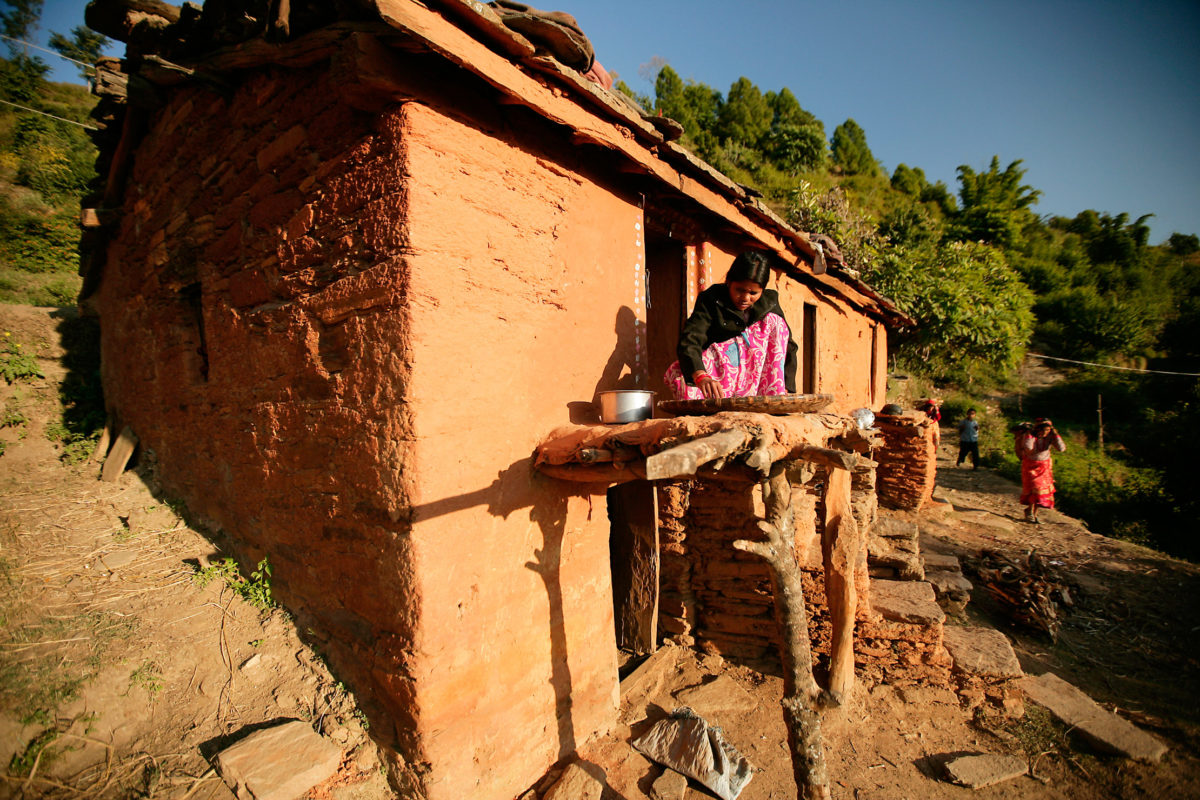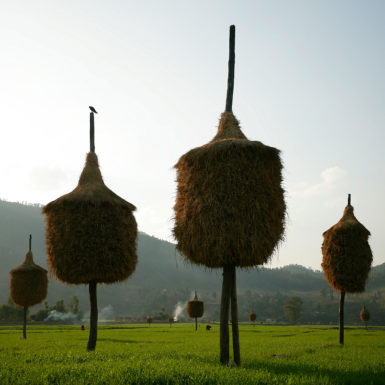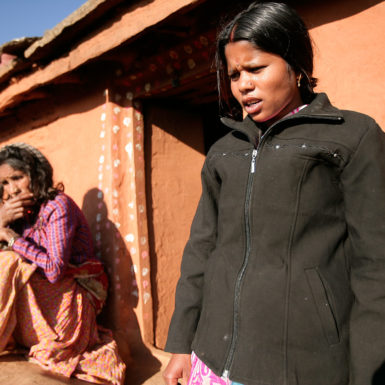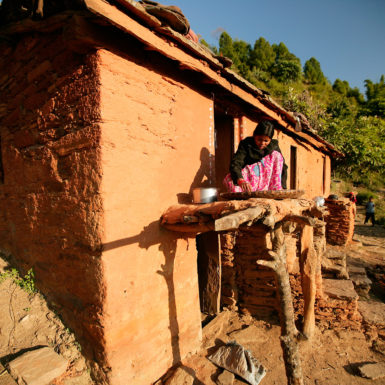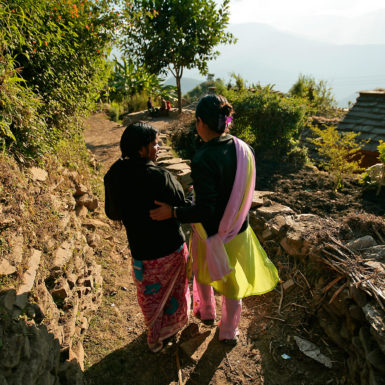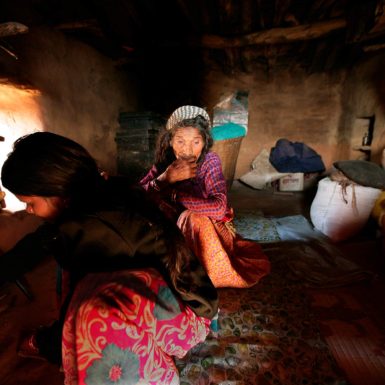Stories from the field represent a series of remembrances from over a million miles on the road.
There I was there I was there I was far western Nepal. We were up in ‘the hills’ which are 14000 ft edifices that anywhere else would be called mountains but in Nepal are called hills. We had survived ‘the most dangerous road in Nepal’ the day before to get to a small town called Silgadhi. We were there to visit the local PLWA (People Living With Aids) support group. The leader of the group was Tara BK. Tara BK is my hero.
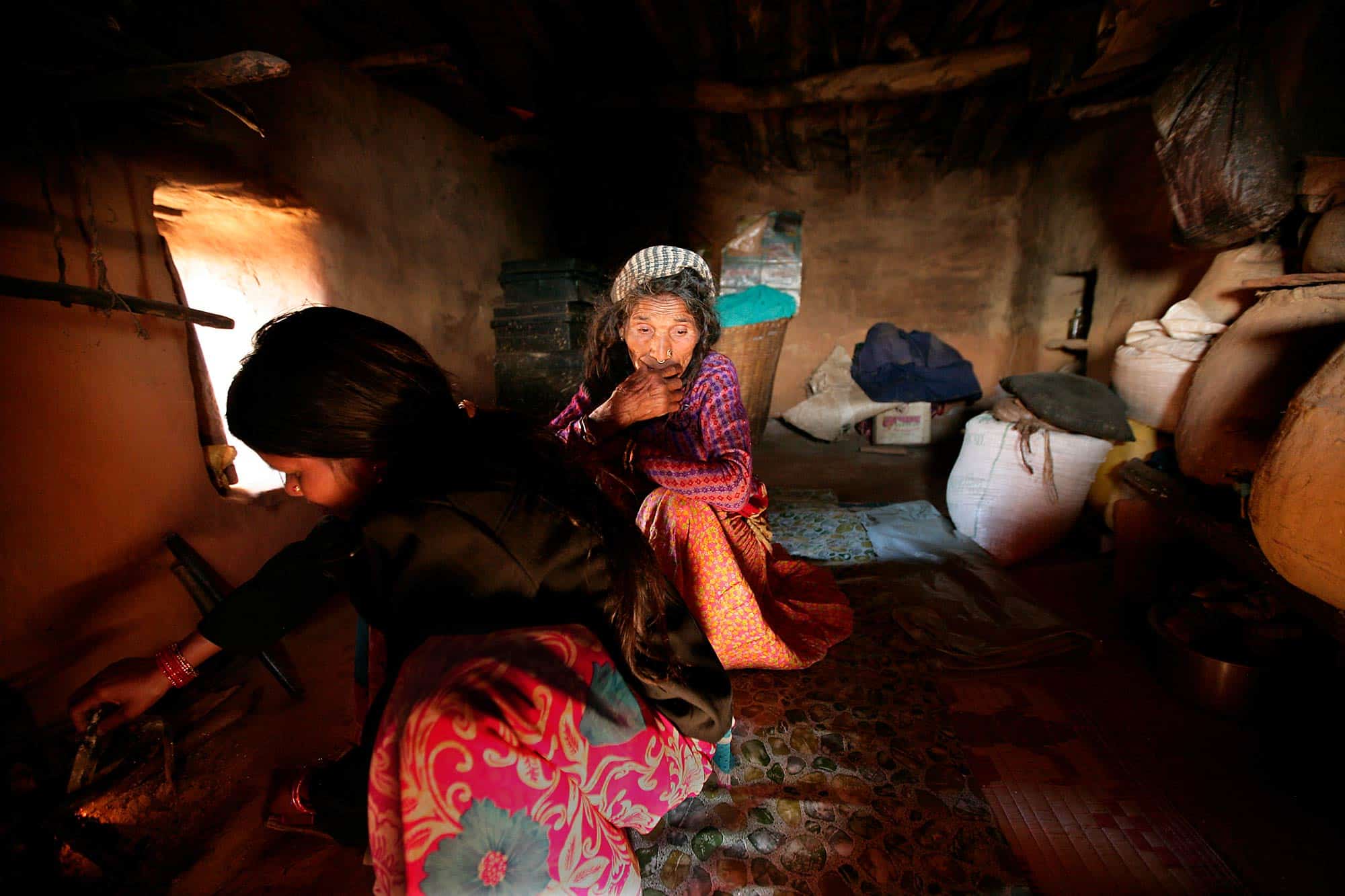
Tara BK belongs to the Bisokarma “low caste community” which means that so called high caste people will not allow her to enter their kitchen. If she goes to an restaurant in the rural areas, she will have to wash her own dishes when she is done eating. She is not allowed to sell milk. If she does others will not buy her milk in the belief the cow will climb up a tree. I have not seen many cows in trees in Nepal proving that the caste system is still strong.
Tara BK was married to a man six years ago. Often the men of this area go to India in search of work. Her husband left shortly after they were married and for five years did not return. On the sixth year, Tara BK put her foot down and decided to join her husband in the southern Indian state of Andhra Pradesh. This was an unusual step for a woman in Nepal but Tara was determined to be with her husband. This was to be a fateful sixth year of their marriage. Tara BK got pregnant, gave birth to a “fair, big and healthy son”. But then her husband began getting fever and the shivers. She took him to the local hospital where the tests showed that her husband was suffering from “desi rog”, a term used for HIV/AIDS. They were told that they had to go to the “big hospital” in Hyderabad for treatment. The day after her husband died.
Two days after her husband’s death, Tara BK was on her way back to Nepal with her newborn son. Soon after her return, Tara worked the fields but began feeling weak and tired. She broke into fever and had the shivers. Salibaan, an outreach worker from her village approached her and asked her how she was doing. She confided in him, told him her symptoms, and also her fear that it might be the “desi rog”. Her friend told her to go to the clinic and the organization could arrange for a test and follow up treatment.
Tara was overwhelmed with worry about her infant contracting the disease. Without any hesitation, she went for the test. She tested positive. Her worry for her baby grew. But they told her that the test for the baby would not be definitive until her boy was 18 months old. She was also warned not to breastfeed her baby. Tara went back home with more problems than she had started. How could she afford to feed her baby? She could not continue to ask for milk from friends and relatives. She was too sick to work in the fields and did not have enough money to buy milk. Desperate, she breastfed her baby. Her fair, big and healthy baby contracted HIV and died. The following six days, Tara BK blanked out. She does not know who took care of the cremation and final rites of her baby.
When her test results came back positive she was given post-test counselling and asked whether she wanted to keep her result confidential or did she want to “come out”. Tara’s world was her husband and her son. She cared nothing for what others said or how they would behave. Tara was the first to “come out” in her area. She joined the local support group whose members helped her through this time. Tara BK realized that her own sorrow could be used to help others. The PLWA group was gaining members and they nominated Tara BK to be the president.
Today Tara BK lives in a 10x10x6ft room in a mud hut with her mother in law. She still faces challenges. Tara BK is a woman. She is a widow. She is of the lowest caste. She is HIV positive. She has lost her husband and her son. Yet Tara BK is ‘out’ and has dedicated her life to preventing new HIV infections and supporting those who are positive. She will walk 10- 15 miles a day to visit her patients and fight stigma.
Tara BK is my hero.
